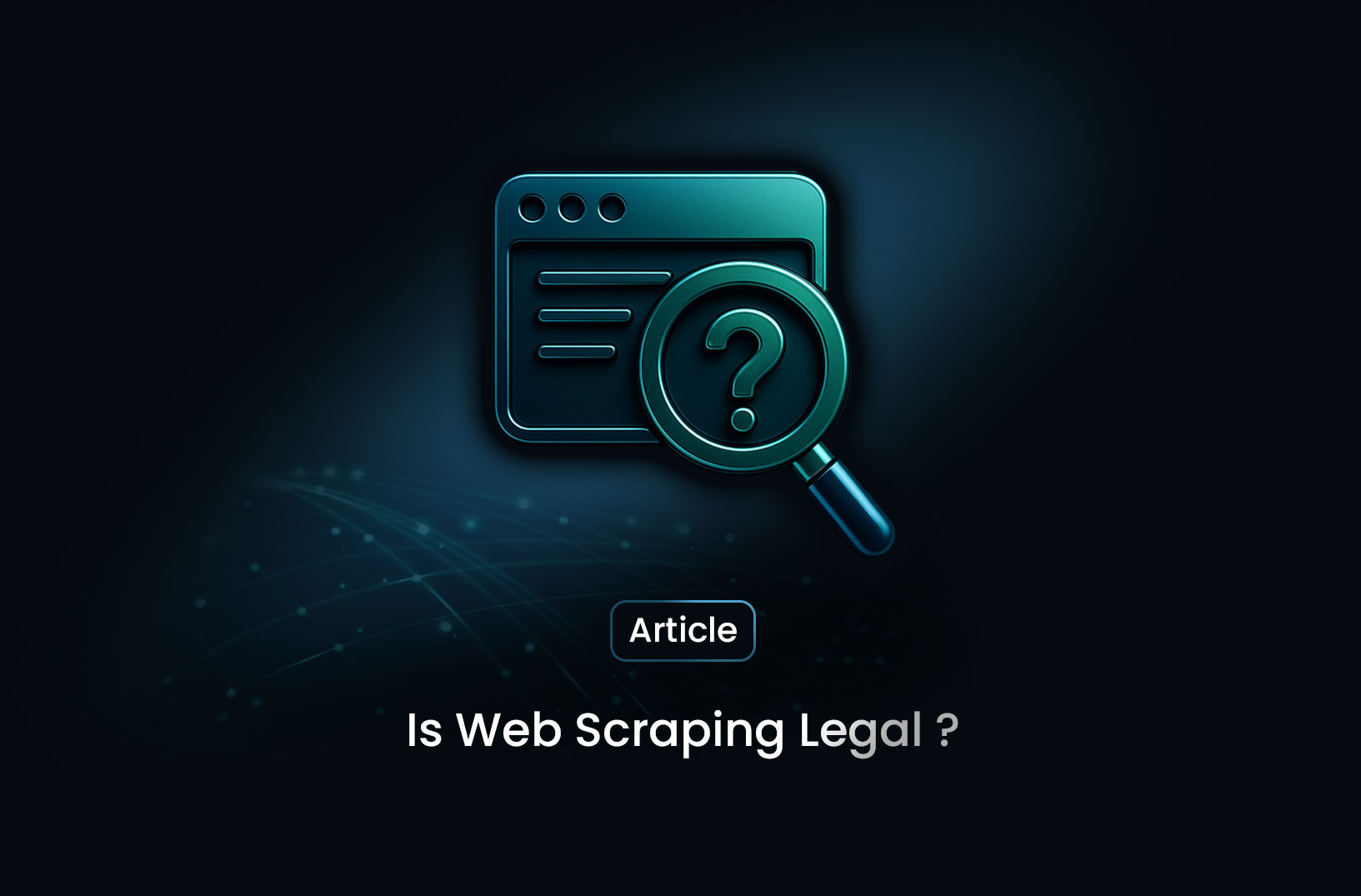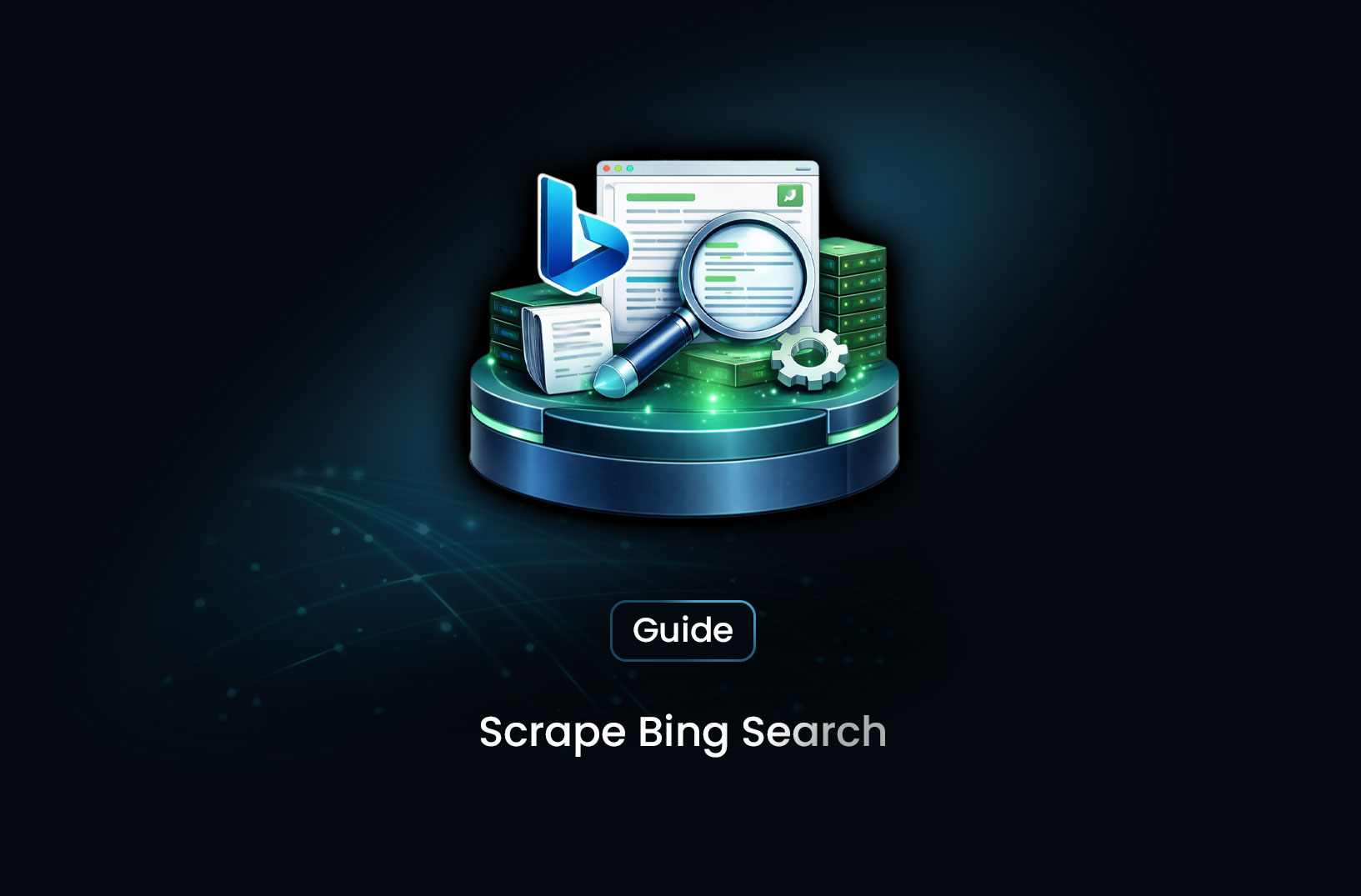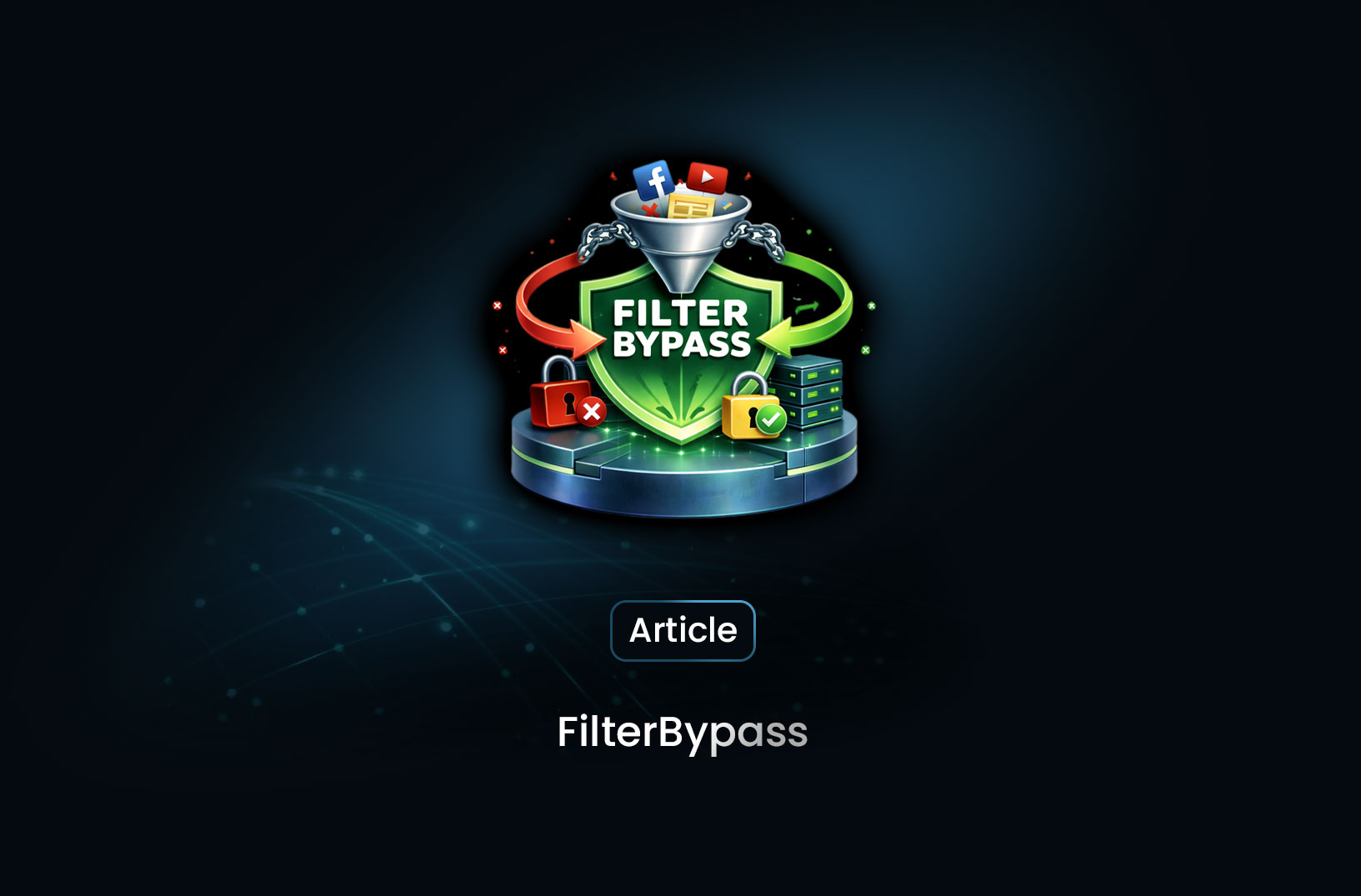
Legal Considerations When Using Scraped Data
ArticleIn today's data-driven world, web scraping, also known as data scraping or web crawling, has become an essential tool for businesses looking to gain a competitive edge. This blog will explore the key legal considerations when using scraped data and provide tips for ensuring your web scraping activities remain compliant with the law.
In today's data-driven world, web scraping, also known as data scraping or web crawling, has become an essential tool for businesses looking to gain a competitive edge. By extracting valuable information from publicly accessible websites, companies can uncover insights into customer behavior, competitor strategies, and market trends. However, while the benefits of web scraping are clear, it's equally important to navigate the legal landscape surrounding this practice. This blog will explore the key legal considerations when using scraped data and provide tips for ensuring your web scraping activities remain compliant with the law.
Legal Landscape
The legal considerations for data scraping include issues related to intellectual property, trade secret law, contract law, and the Computer Fraud and Abuse Act (CFAA). Copyright law does not adequately protect data and databases, leading to the use of contract law, the CFAA, and state unfair competition law in disputes involving data scrapers. Trade secret law has been applied to data scraping cases, providing a framework for analyzing these disputes and offering a potential solution. The CFAA, a federal statute, prohibits unauthorized access to data and can be relevant in cases where scrapers breach password barriers. The legal landscape surrounding data scraping is uncertain, and there is a need to consider the broader public interest in data scraping when developing legal frameworks.
Compliance Tips
Navigating the legal complexities of web scraping requires diligence and adherence to best practices. Here are some tips to help ensure your web scraping activities remain compliant:
-
Obtain Necessary Permissions: Before scraping any website, review its terms of service and obtain any required permissions. Some websites may allow scraping under specific conditions or require you to register as a user.
-
Respect Robots.txt Files: Many websites use robots.txt files to indicate which parts of the site can be accessed by web crawlers. Respecting these directives is crucial to avoid violating the site's policies.
-
Anonymize Data: When scraping data that could potentially identify individuals, take steps to anonymize the information. This can help you comply with data privacy laws and protect the privacy of individuals.
-
Limit Data Collection: Only collect data that is necessary for your purposes. Excessive data collection can increase the risk of legal issues and violate privacy regulations.
Our Solution
We understand the importance of legal compliance in web scraping. Our web scraper product, MrScraper, is designed with these considerations in mind. We prioritize compliance by incorporating features that help users avoid legal pitfalls. For instance, MrScraper respects robots.txt files by default, ensuring that your scraping activities align with website policies. Additionally, our tool includes options for anonymizing scraped data, helping you stay compliant with data privacy laws.
Moreover, MrScraper is equipped with customizable settings that allow you to tailor your scraping activities to meet specific legal requirements. Whether you need to limit the amount of data collected or obtain necessary permissions, our tool provides the flexibility to do so. By using MrScraper, you can confidently extract valuable data while adhering to legal standards.
Find more insights here

Scrape Bing Search: A Practical Technical Guide
Bing scraping blocked? Discover how to bypass rate limits and bot detection to extract URLs, titles,...

FilterBypass: Unblocking Restricted Sites in a Simple Way
FilterBypass is a free web proxy that acts as an intermediary between your browser and the target si...

YouTube.com Unblocked: Accessing YouTube When It’s Restricted
Learn how to access YouTube unblocked on school, work, or regional networks. Explore VPNs, proxies,...
